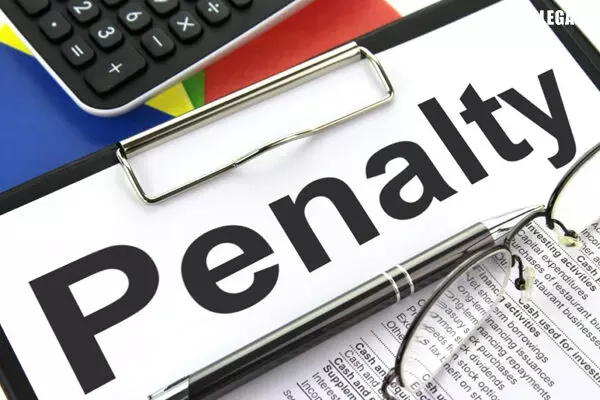- Home
- News
- Articles+
- Aerospace
- Artificial Intelligence
- Agriculture
- Alternate Dispute Resolution
- Arbitration & Mediation
- Banking and Finance
- Bankruptcy
- Book Review
- Bribery & Corruption
- Commercial Litigation
- Competition Law
- Conference Reports
- Consumer Products
- Contract
- Corporate Governance
- Corporate Law
- Covid-19
- Cryptocurrency
- Cybersecurity
- Data Protection
- Defence
- Digital Economy
- E-commerce
- Employment Law
- Energy and Natural Resources
- Entertainment and Sports Law
- Environmental Law
- Environmental, Social, and Governance
- Foreign Direct Investment
- Food and Beverage
- Gaming
- Health Care
- IBC Diaries
- In Focus
- Inclusion & Diversity
- Insurance Law
- Intellectual Property
- International Law
- IP & Tech Era
- Know the Law
- Labour Laws
- Law & Policy and Regulation
- Litigation
- Litigation Funding
- Manufacturing
- Mergers & Acquisitions
- NFTs
- Privacy
- Private Equity
- Project Finance
- Real Estate
- Risk and Compliance
- Student Corner
- Take On Board
- Tax
- Technology Media and Telecom
- Tributes
- Viewpoint
- Zoom In
- Law Firms
- In-House
- Rankings
- E-Magazine
- Legal Era TV
- Events
- Middle East
- Africa
- News
- Articles
- Aerospace
- Artificial Intelligence
- Agriculture
- Alternate Dispute Resolution
- Arbitration & Mediation
- Banking and Finance
- Bankruptcy
- Book Review
- Bribery & Corruption
- Commercial Litigation
- Competition Law
- Conference Reports
- Consumer Products
- Contract
- Corporate Governance
- Corporate Law
- Covid-19
- Cryptocurrency
- Cybersecurity
- Data Protection
- Defence
- Digital Economy
- E-commerce
- Employment Law
- Energy and Natural Resources
- Entertainment and Sports Law
- Environmental Law
- Environmental, Social, and Governance
- Foreign Direct Investment
- Food and Beverage
- Gaming
- Health Care
- IBC Diaries
- In Focus
- Inclusion & Diversity
- Insurance Law
- Intellectual Property
- International Law
- IP & Tech Era
- Know the Law
- Labour Laws
- Law & Policy and Regulation
- Litigation
- Litigation Funding
- Manufacturing
- Mergers & Acquisitions
- NFTs
- Privacy
- Private Equity
- Project Finance
- Real Estate
- Risk and Compliance
- Student Corner
- Take On Board
- Tax
- Technology Media and Telecom
- Tributes
- Viewpoint
- Zoom In
- Law Firms
- In-House
- Rankings
- E-Magazine
- Legal Era TV
- Events
- Middle East
- Africa
ITAT: No Penalty Can be Levied for Venial Technical Breach Without ‘Mala Fide Intention’ under Section 271B of Income Tax Act

ITAT: No Penalty Can be Levied for Venial Technical Breach Without ‘Mala Fide Intention’ under Section 271B of Income Tax Act
The Income Tax Appellate Tribunal (ITAT), Chennai has observed that when the Tax Audit Report is made available to the Assessing Officer (AO) before completion of assessment proceedings, penalty cannot be levied for venial technical breach, without any mala fide intention on the part of the assessee, under Section 271B of the Income Tax Act (for short- the Act).
The coram comprising of V. Durga Rao (Judicial Member) and Arun Khodpia (Accountant Member) while noting the circumstances surrounding in the present case, granted relief to Vellakovil Primary Agricultural Cooperative Bank Limited (assessee/appellant).
The factual matrix of the case is that the assessee had made cash deposits into its bank account during the assessment year 2013-14 however, it had failed to file the return of income.
The case was reopened, and a notice under Section 148 of the Income Tax Act was issued. The assessee was required to file the Income Tax Return within 30 days from receiving the notice, but it filed the return beyond the stipulated period.
Subsequently, penalty proceedings were initiated under section 271B of the Act for the delayed filing of the audit report under Section 44AB of the Act. The penalty was confirmed by the Commissioner of Income Tax (Appeals) [CIT(A)] in the appeal.
Aggrieved by the same, the assessee filed an appeal before the ITAT.
The assessee submitted that due to Covid pandemic lock down, the income tax portal was under maintenance, hence, the assessee was unable to file the return of income along with tax audit report under section 44AB of the Act within the due date as mentioned in the notice under section 148 of the Act.
It was further submitted that the audit report under section 44AB of the Act were furnished during the course of assessment proceedings, which was also considered by the Assessing Officer before concluding the assessment and thus, prayed for deleting the penalty levied under section 271B of the Act for all the assessment years under appeal.
The ITAT acknowledged the fact that the assessee had faced challenges in filing the Return of Income along with the tax audit report within the specified date mentioned in the notice under Section 148 of the Income Tax Act, due to the COVID-19 pandemic lockdown and the unavailability of the income tax portal due to maintenance.
However, the assessee had eventually submitted the tax audit report under Section 44AB of the Act during the assessment proceedings.
The bench noted that the AO before concluding the assessment had considered the submissions forwarded by the Assessee.
In this regard the bench observed, “we are of the considered opinion that when the Tax Audit Report was made available to the Assessing Officer before completion of assessment proceedings, then for venial technical breach without any mala fide intention of the assessee, the penalty cannot be levied under section 271B of the Act.”
Therefore, in light of the extraordinary circumstance, the ITAT held that the case did not warrant the imposition of a penalty under Section 271B of the Income Tax Act.
Accordingly, the penalty that was levied under Section 271B of the Act was deleted.



